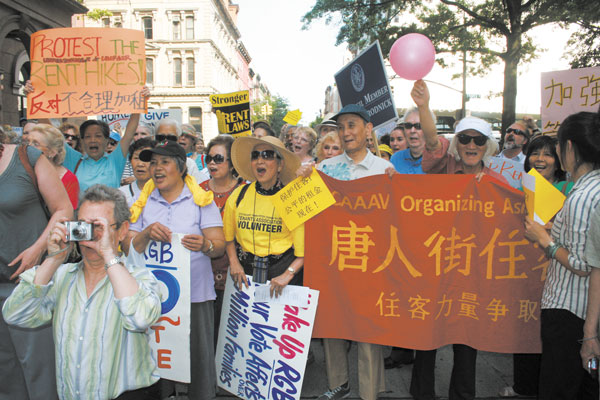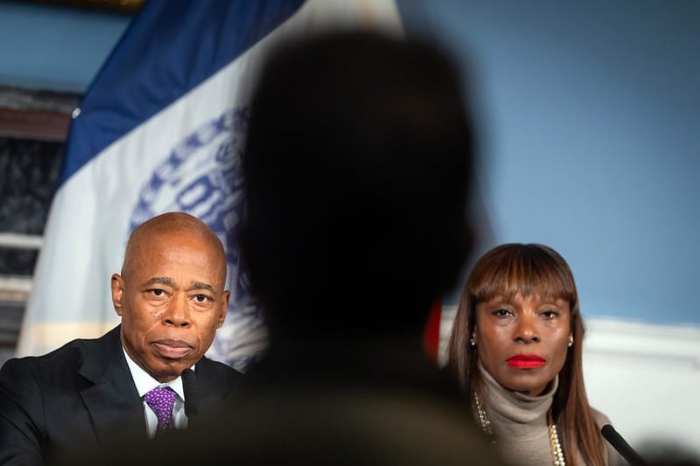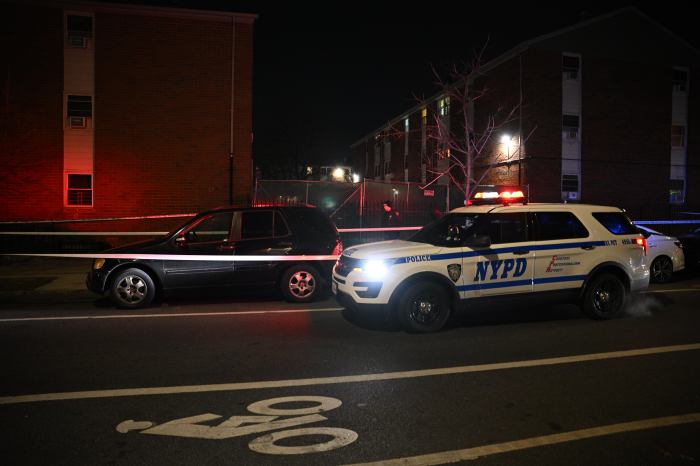
BY Aline Reynolds
“They say rent hike! We say fair rent!” was one of many chants Chinatown and Lower East Side residents shouted on Mon., June 20 at a rally to protest the city’s imminent rent hikes.
The city Rent Guidelines Board will vote on the proposed rent increases on Mon., June 27 for lease renewals of apartments, lofts, hotels and other housing units that are subject to the state’s rent stabilization law, which is currently being debated in Albany and awaiting passage. The R.G.B. is considering a hike of up to 5.75 percent for one-year lease renewals and a six-to-nine percent hike for two-year lease renewals — higher than last year’s increases of 2.25 percent and 4.5 percent for one- and two-year lease renewals, respectively. The new law would also institute a surcharge of one percent for tenants in buildings that use heating oil as opposed to natural gas.
The new rents will go into effect on October 1, and last through September 30, 2012.
On Monday, the groups marched down the Bowery, from Chatham Square to Cooper Union, where the R.G.B. hearing was being held. Many of them then attended the hearing to testify and voice their support.
“Chinatown has a lot of working class people. Rents are already unaffordable for them,” said Chinatown tenant Fuko Pan. “We can’t let [them] go up anymore.”
“[My parents] are concerned about the substantial increases happening this year,” said Madison Street resident Billy Zhu. Zhu’s father and mother, who has lived in their rent-controlled apartment for more than 30 years, has struggled to keep up with the family’s lease since they retired.
Zhu, currently unemployed, is afraid he wouldn’t have enough money for lodging if he and his parents were forced out of the apartment. “It would be difficult,” he said.
As landlords continue to increase their net operating revenue, local tenants in have seen their incomes drop by 12 percent in the last two years, according to District One Councilmember Margaret Chin, who testified at the hearing.
“Rent increases should be very narrowly tailored to provide only the income necessary for owners to maintain services, and should burden tenants as lightly as possible, [especially since] the number of units taken out of stabilization because of luxury and vacancy decontrol continues to rise” said Chin.
The R.G.B. needs to take tenants into account when considering rent increases, according to the Committee Against Anti-Asian Violence Chinatown tenants’ union director, Esther Wang.
“Every year, the [R.G.B.] caves in to landlord interests and raises rents for millions of New Yorkers, never taking into consideration that working-class and immigrant New Yorkers are having a harder and harder time finding work and making ends meet,” said Wang.
State Assembly Speaker Sheldon Silver is advocating for a complete freeze on the regulated rents. “In this difficult economic climate, hard-working New Yorkers simply cannot afford another rent increase,” he said. “Too many New Yorkers have been priced out of their neighborhoods, threatening our city’s supply of affordable housing.”
District Two Councilmember Rosie Mendez, who marched to the hearing with tenants from the Village and the Lower East Side, is urging the R.G.B. to keep the coming year’s rent increases below two percent for a one-year lease and below four percent for a two-year lease.
While city buildings’ net operating incomes have risen in recent years, costs to run them have slightly decreased.
“Within the communities of my district, there are tens of thousands of rent-stabilized housing units which are at risk of being lost,” said Mendez. “At this time, when the recession has hit working class New Yorkers very hard, it is critically important that the Rent Guidelines Board take steps to ensure that these units are preserved for our city’s low- and middle-income families.”
Manhattan Borough President Scott Stringer testified against the heating oil surcharge on tenants, which he said would provide an incentive for landlords to keep dirty boilers in place. Sixty-three percent of NYC buildings with one or more rent-regulated apartments burn dirty fuel oil, according to a report Stringer’s office released earlier this month.
“Clearly, all New Yorkers will benefit from the rapid conversions of these dirty boilers to cleaner fuels. However, the [R.G.B.] is actively working against the public interest by proposing a supplemental one percent increase for all buildings that use any type of fuel oil,” said Stringer. “At the very least, this ridiculous proposal should be modified so that not a single cent is used to incentivize boilers burning number four and number six home heating oils.”



































